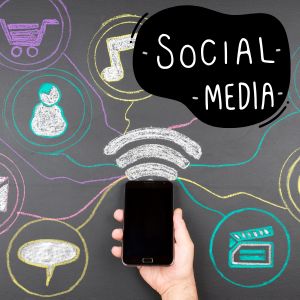In the 21st century, social media has become a huge part of our daily lives, shaping the way we communicate, interact, and perceive the world. From connecting individuals across continents to driving societal change, its influence cannot be overstated. What was once a tool for casual connection has now evolved into a powerful platform that impacts personal relationships, business strategies, and global movements.
1. Connecting the World
Social media has revolutionized communication. Platforms like Facebook, Instagram, X, and LinkedIn bridge geographical barriers, enabling people to stay in touch regardless of their location. Families separated by distance can share life updates instantly, and old friends can reconnect after years apart. Moreover, social media fosters the creation of global communities where people with shared interests or goals can collaborate and support one another. Whether it’s a photography enthusiast sharing tips or activists advocating for change, these platforms create spaces where voices can be heard.
2. Driving Business Growth
For businesses, social media is a game-changer. It provides a direct line to consumers, allowing brands to engage with their audiences in real-time. Companies can promote products, share updates, and gather valuable feedback without the need for expensive traditional advertising. Platforms like Instagram and TikTok have even given rise to influencer marketing, where creators with loyal followings partner with brands to drive sales and awareness.
Additionally, small businesses have particularly benefited from social media. Entrepreneurs can set up shop online, reach niche markets, and build relationships with customers at a fraction of the cost of traditional methods. Social media analytics also offer insights into consumer behavior, helping businesses make data-driven decisions to refine their strategies.
3. Amplifying Voices and Driving Social Change
Social media is a powerful tool for advocacy and activism. Movements like #MeToo and climate change campaigns gained global traction thanks to platforms that allow individuals to share stories and call for action. These digital spaces have democratized access to information, making it easier for people to stay informed about social and political issues.
Furthermore, social media provides a voice to marginalized communities, enabling them to challenge narratives and demand accountability. The immediacy and reach of these platforms can spark conversations that lead to real-world impact, from policy changes to cultural shifts.
4. Enhancing Education and Awareness
In the digital age, social media is a treasure trove of information. Educators, students, and lifelong learners use these platforms to share resources, collaborate on projects, and discover new ideas. From online tutorials to webinars hosted by experts, social media enables knowledge sharing like never before. Platforms like YouTube and LinkedIn have even become hubs for professional development, offering courses and networking opportunities.
5. Challenges and Responsibilities
While social media has its benefits, it’s important to acknowledge its challenges. Issues like misinformation, cyberbullying, and addiction are real concerns. Users must approach these platforms responsibly, practicing digital literacy and mindfulness. For all its advantages, social media is a tool that requires balance and thoughtful use.
Conclusion
The importance of social media lies in its versatility. It connects people, empowers businesses, amplifies voices, and fosters learning. However, with great power comes great responsibility. By using social media thoughtfully, we can harness its potential to create a more connected, informed, and equitable world. Whether for personal connections, professional growth, or societal change, social media is a cornerstone of modern life.
